Their Finest press conference with Gemma Arterton, Bill Nighy and Lone Scherfig
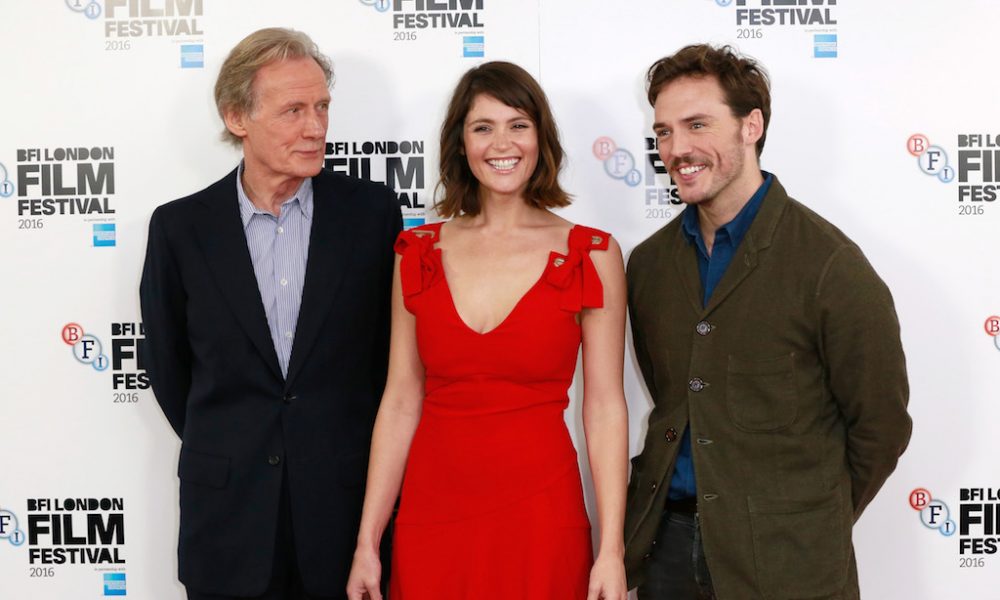
Promoting the release of Their Finest, actors Gemma Arterton, Bill Nighy, Sam Clafin, Rachael Stirling and director and producers Lone Scherfig, Amanda Posey and Stephen Woolley spoke to the press at the London conference. The movie tells the story of a British film crew that attempts to boost morale in Britain during the Second World War through making propaganda films. They talked about the joy of making a film about filmmaking, whether or not the it should be regarded as feminist, and discussed what it means to have it showing at the London Film Festival.
Stephen and Amanda, you co-produced this film and have both worked on academy award winning films in the past, what brought you two together on this movie?
Amanda Posey: Well be both fell in love with the book, Their Finest Hour and a Half, and Stephen found out I was the other person competing for the book. We know each other of old, and he called me up and said “We have to do this together”.
Stephen Woolley: Amanda and I worked together many years ago, we’ve known each other a very long time.
AP: It wasn’t an obvious book to adapt to film, but we both felt very passionate about the story, about the story of filmmaking during the war.
Lone, you seem to be on a roll, showing a remarkable affinity with British actors and tackling very typical British stories. Why is that? What’s the appeal for you?
Lone Scherfig: It’s just that I love British actors, British stories, British architecture, and London more than ever after making this movie as I got to know the British film industry. But really, it was the script that I really related to, and felt close enough to the writer to be able to be loyal to the material, and still felt that I had something to bring to the table. And for some reason those scripts are from here!
Gemma, you’ve already shown great breadth in your career, this film is another string to your bow. What appealed to you most, the story of this woman finding herself, almost accidentally, or the love letter to filmmaking?
Gemma Arterton: Both I would say. I was very impressed to see a story that was centred on a woman who isn’t a showy character, she’s just her, she’s gentle. And then yes, to make a film about filmmaking, it’s something we all know well it’s our expertise (or at least some of our expertise!). And I’d been wanting to work with Lone for so long!
Sam, I’m not sure if it’s just your moustache, but this seems to be the most mature role that you’ve done. Tom Buckley is cynical and bitter but you manage to make him endearing. How did you psyche yourself into being Mr 1940?
Sam Clafin: I think I just grew a moustache! I think that’s true, that was all me, I’m pretty happy about that. No, it wasn’t like anything I’d done before, it was a very mature role like you say. I think I was fortunate, this being the second film I’d worked on with Lone, as I knew the way that she prepared and rehearsed. I always enjoy exploring a character and role in the company of other people, navigating that together. It was such a collaborative thing, I didn’t think I thought too hard or too deeply about it. I remember Lone approached me just after doing Riot Club and she said that she was thinking about doing this film and there was the perfect character in it for me. And then when I read the script I thought “I don’t see why I’m… perfect for it!”. But strangely I think I did naturally fall into it a bit and having Gemma as a sparring partner, that chemistry was there without trying, it was quite easy! I hate saying it was easy, I’m such a good actor it was so easy, but yeah, I felt free.
Rachael, Phyllis is such a rocking chick for 1940, you have some of the best lines in the film – was it the script that appealed to you most or was it the whole atmosphere?
Rachael Stirling: It was all of those things. I’d seen Lone’s films before, and Phyllis is a true original. And without navel-gazing, I do love a film about filmmaking, the process and texture of it, which this movie captures so beautifully. I like seeing how things are done. And then on top of it you have the realism of the war and the fantasy of filmmaking. So to me it had all the elements.
Bill, I’m sure I’m not the only one wondering if when you were a mere stripling at the RSC you may have known some seasoned hams of yesteryear which may have inspired Ambrose a tiny touch?
Bill Nighy: How dare you! I never worked at the RSC just for the record. There’s a very distinct lack of classical work on my CV, largely because I refuse to operate with those kinds of trousers. That’s not even a joke. If you want the best out of me I have to be wearing a decent lounge suit. I got to wear some very big trousers in this part. What was the question? Oh yes, well I haven’t actually ever met that many “hams”, it’s a generational thing. I don’t think they survived into the modern era. There are versions of them I suppose. Actors are generally brought on in movies and plays for unflattering reasons, they’re not brought on to demonstrate how wonderful human beings are. It’s like journalists, I mean journalists are occasionally heroic but you rarely get a heroic actor. They’re generally brought on to demonstrate what a mess we can be. But this script was very satisfying, and I very much wanted to work with Lone, like everyone else, I admire her tremendously. I loved the book too. It’s conspicuously a great role, as I fanny around doing things. They were looking for someone to play a chronically self-absorbed actor in his declining years and they thought of me, which is easier to process on some mornings than on others.
Gemma, the character you play is brought in to write the “nausea and slop” of female dialogue in these propaganda films. Was that a phrase you were familiar before, and did it make you feel nauseous yourself?
GA: Yeah, I’m not wrong in thinking it was a term used..
SW: Yes, it wasn’t a popular term, but it was used in some English films. A female writer was employed just to write female dialogue, and so they called it the “nausea”. It wasn’t an industry term as such, but it was used at Ealing Films who made all those wonderful movies during and after the war. “Slop” was also a term used in America for female writing in film. In terms of women and screenplays there were a lot of women employed to write but they weren’t credited. There was a woman employed on The Third Man – she could have written Orson Wells’s famous speech for all we know.
GA: It’s obviously sexist, but for Catrin funnily enough I don’t think she’s aware of it. I think at that time it’s just kind of accepted. We hadn’t had the feminist movement yet, so in the 1940s I imagine you just got on with it. I think Catrin is a feminist and she doesn’t know it. I like that about this film, it has a message but it’s very underplayed, it’s not shouted out, it’s just there.
SC: It’s the casual sexism which I think was quite attractive to me. Wait let me rephrase that. It’s of the time! And proves how far we’ve come, albeit with some way to go. I loved the subtle humour of it all, which we can laugh at now but which was obviously a bit more serious at the time.
Sam and Gemma, having now played screenwriters, do you have a greater respect for the art of screenwriting?
GA: Yeah! It’s hard! I’m making a film at the moment but I haven’t written the dialogue. It’s really intricate. It’s a very detailed process and so thrilling, doing the brainstorming and coming up with ideas, [looking at Lone Scherfig], I imagine it’s just like that!
LS: Sometimes! I hope that after watching this films writers will want to become screenwriters. Because the script is the most important thing in a film – but they already knew that!
SC: Yes, it’s because I read the script…that I wanted to do the film. But yeah, I’ve tried my hand at writing a script and I found it incredibly difficult because I found it very hard to make the characters sound different to myself. I ended up just using my voice. As I was reading it out I realised that they all sounded exactly the same, even the female and male character. I think being able to structure film and a story is an incredible gift.
How does it feel to have this film showing at the London Film Festival, and also what do you think the magic of cinema really is?
GA: I’m really proud of this film and it’s so wonderful to show it here. Tonight Sadiq Khan is hosting it, and it’s a love letter to London and how wonderful and diverse it is, all the things you can do here, the real spirit of London. It’s a hopeful film, which is obviously what we need right now! It’s transports you. The film makes you feel happy.
SW: We loved making a film about a time when filmmaking was important. When they made films in the 1940s it was a matter of life and death, producers didn’t know if they’d have a set, or actors the next day, if the Germans would have invaded and these films were real love letters to America: “please come, please help us.” And these films were also trying to keep the people living through the Blitz in London, in Coventry across the country, happy. Producers think they have problems now, but they really did then. And it was such a joy to make a film about a time when it mattered. 30 million people went to the cinema a week in 1940, it was the golden age of filmmaking.
To what extent is the attitude of, “Of course you won’t be paid as much as the boys’, still prevalent in the film industry today?
LS: I was thinking about a different line, where Buckley says “Girls don’t want to be the hero, they want to be had by him,” and Catrin hardly reacts, it doesn’t really sink in. Another example of her finding out how fun going to work can be, and Buckley’s increasing respect for her helps him build his emotional identity as she builds her professional one. And I think that still happens a lot in our world today. I never felt this film was primarily feminist – film history, the love story, that attracted me more. The story of a woman finding out what she can do is definitely the main plot of the story but overall it’s the themes of London and the film industry which gives the movie its complexity. It’s much more than a story about a woman finding out how much fun she can have at work.
Sam and Gemma, did you have any part in the script writing?
SC: Well no, it was adapted from a book so the plot was already all there. There wasn’t much I think either of us could have added!
LS: I think that you four actors are all so musical, not just smart at analysing, but you’re musical and good dancers and I think making this complex script light and humorous was key, and only actors can make things seem light, and “throw away’”when in fact they’re not.
This story is quite empowering for female writers and screenwriters, was that something that you really wanted to bring out in the film?
LS: I come from such a privileged background, that when we talk about feminist issues, I think it should be about the third world or women who are a lot less privileged than me. I get to work with so many fantastic people and I have all my life. I work with men who are not oppressive at all, look at us, there’s no reason to complain! I teach writers and directors, and behind closed doors in small groups, I can tell them what they need to change to address the problem you’re talking about but I think it would be ungrateful to do so here – we’ve just made this film about a young girl who has so many skills, and Rachael’s character who proves that women can do great things, and men who change over the course of the film.
AP: I think we were interested in the truth of the story, and that’s what the film is about. In this film is happens that the truth of her story is that there are these two sisters and that has a lovely sort of feminist theme to it, but really it’s about finding the truth of the story.
RS: Really I think we make a film within a film. The film within the film is a flag waving one, but our one isn’t, it’s a thing of joy, of absolute joy and a celebration of women, not a proclamation about them. One can impose a feminist message on the film, but that’s not one that we’re standing apart and screaming about.
Tess Colley
Photos: John Phillips/Getty Images
Their Finest does not have a UK release date yet.

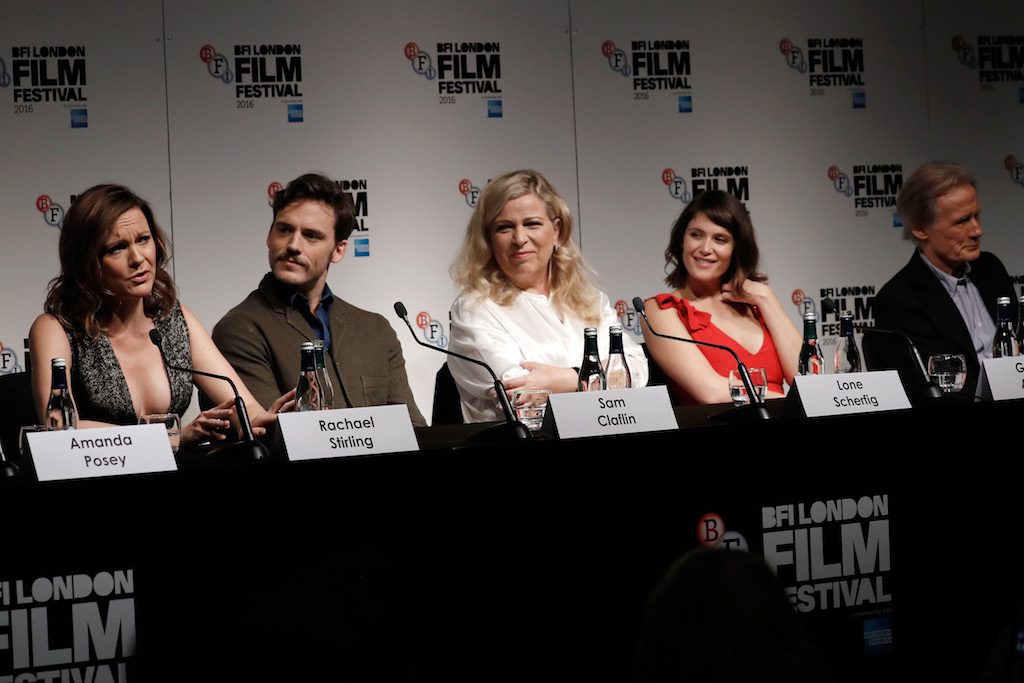
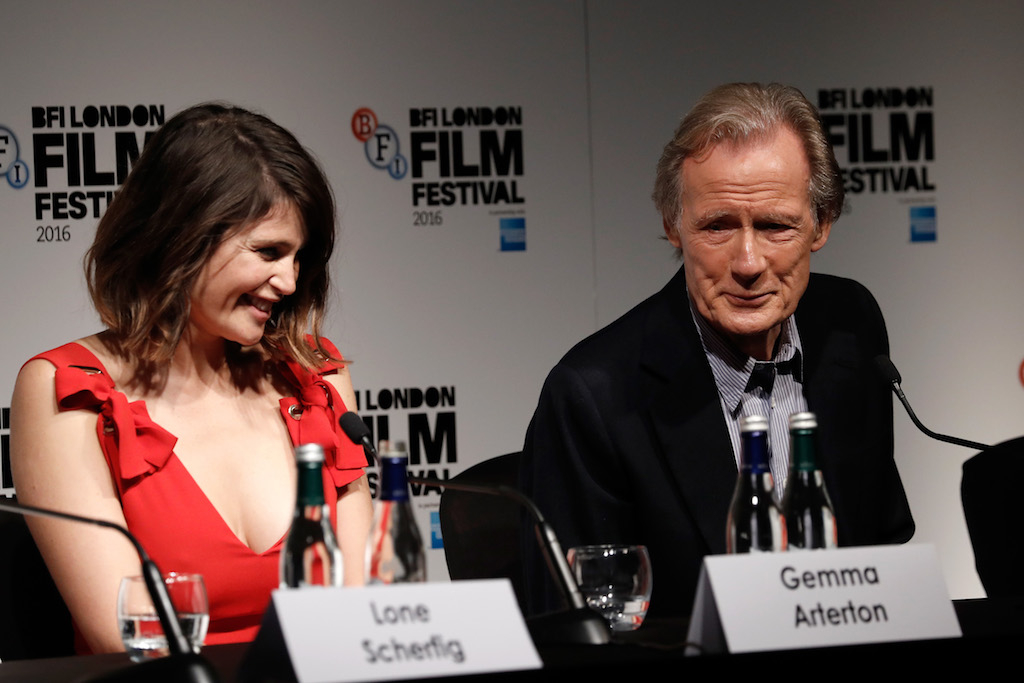
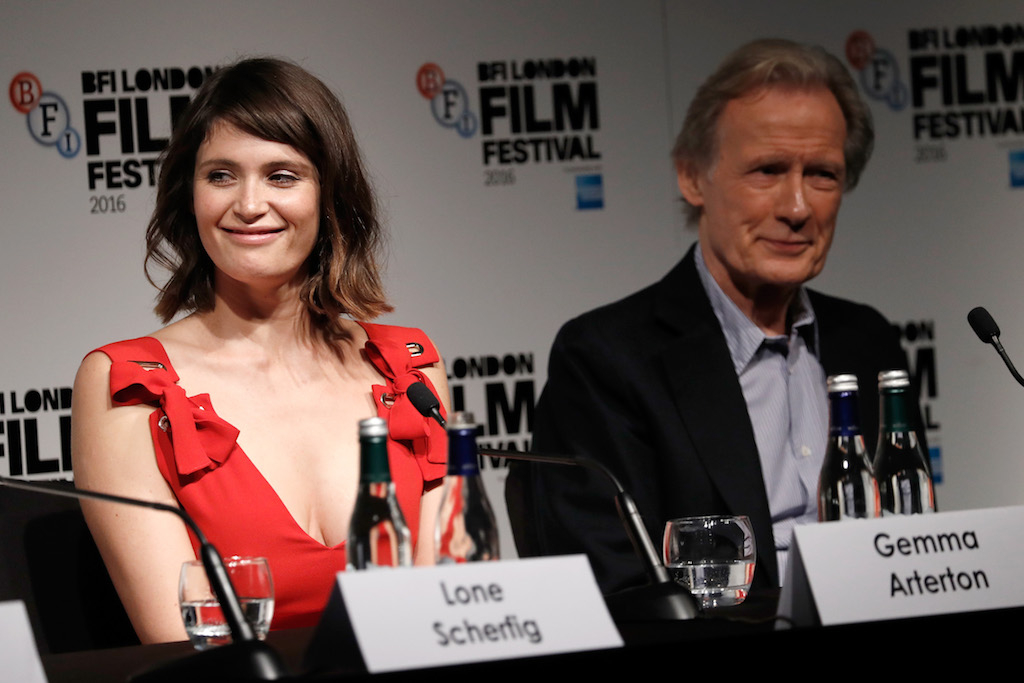
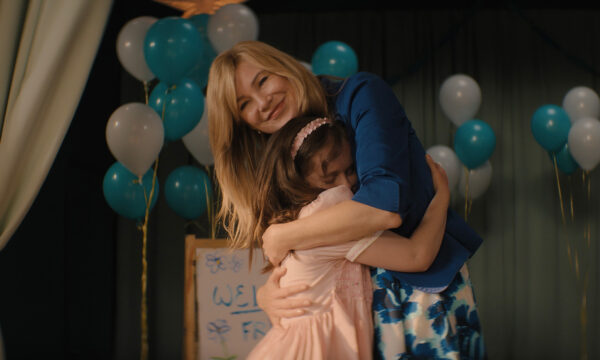
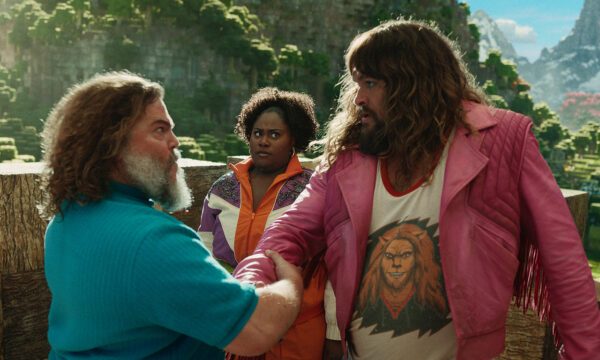
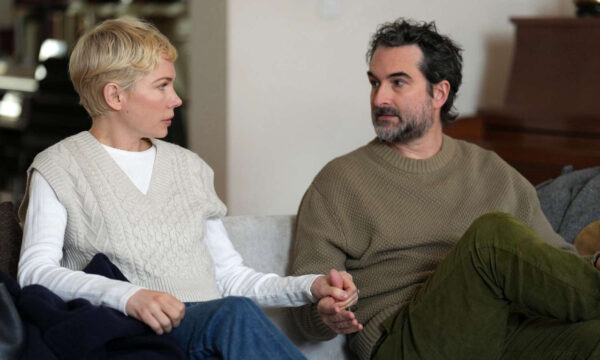
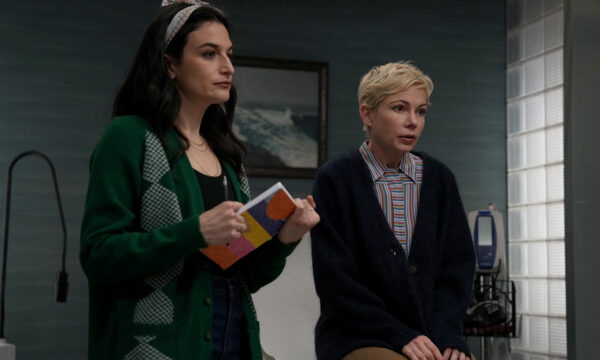


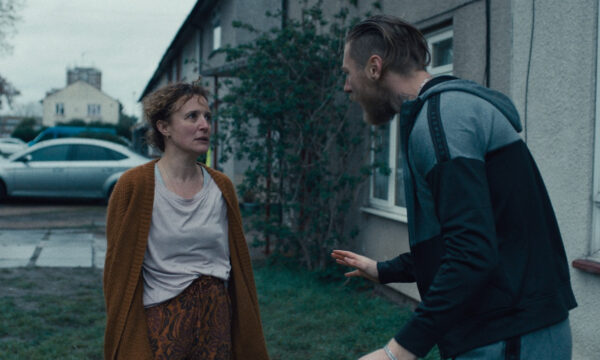












Facebook
Twitter
Instagram
YouTube
RSS